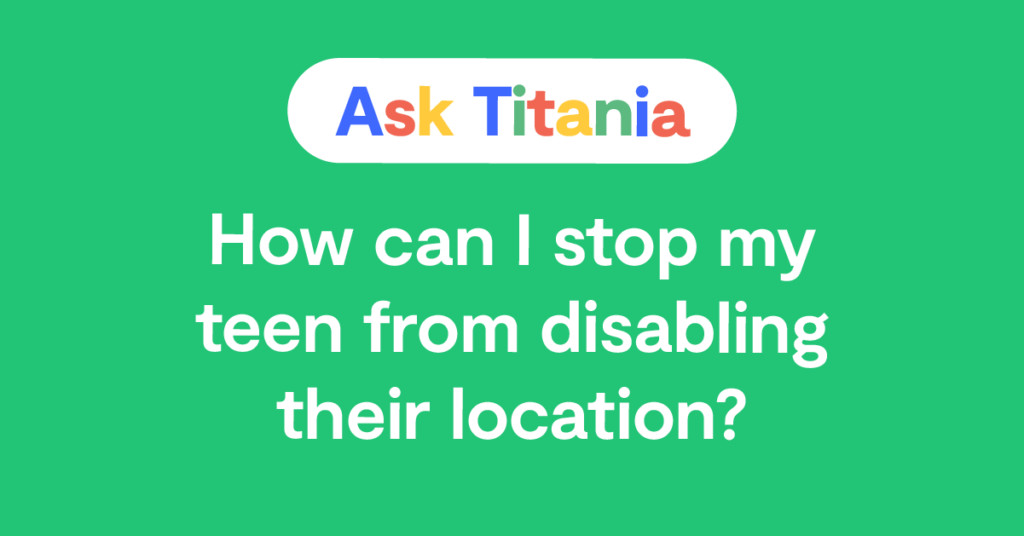
Dear Titania,
My teen continuously sneaks out in the middle of the night and purposefully turns off location sharing on her phone so that we can’t track her location. Is there a way to disable this so that she can’t turn it off?
Signed,
Mom of the Night Watch
Dear Mom of the Night Watch,
So you have an explorer on your hands! You’re 100% not alone, as many parents have fought the same battle for generations — though our parents definitely didn’t have to worry about a digital device being deactivated. Let’s get into it!
The Real Issue
Depending on what location tracking tool you use — Apple Screen Time, Google Maps, or another app — resourceful kids may find ways to disable it. In addition to scouring the internet for complicated digital hacks, they could always simply just power it off or toggle it into airplane mode.
Or, like their Gen X ancestors, they could opt for no phone and just leave it at home, where it can safely report its location as just a few feet from you. When it comes to giving parents the shake, a truly committed teen will stop at nothing. The real issue, then, comes down to why they feel they need to keep doing this, and how you can express your concerns.
To Surveil or Not to Surveil
Some parents I’ve talked to have added digital home security alarms or external cameras to find out when their kids come and go. You certainly wouldn’t be the first family to try this, and even if it seems a little drastic, some parents find it’s worth a shot. Still others find this to be an invasion of privacy, and it won’t, after all, necessarily stop your child from leaving — you’ll just know when it happens.
Starting the Conversation
At the end of the day, many veteran parents will tell you that there’s no stopping a strong-willed teen! So let’s talk about an offensive strategy: have an open discussion with your teen about your concerns. This might seem a little underwhelming compared to iron-clad location settings and home security systems, but its impact will be far more reaching.
Start by asking them why they are sneaking out and where they are going. For this conversation, tell them they won’t get in trouble so they feel safe telling the truth. Once you hear them out, try to come up with a solution together. Maybe you’ll consider a compromise, possibly by extending their curfew or inviting their friends over for an evening.
Teens Can Feel Invincible
This is easier said than done, but you can try expressing your worries (without getting too lecture-y) for their safety and well-being. If they got hurt or even kidnapped while they were out, how would you locate them or even know they were gone in the first place if they snuck out?
The biggest obstacle is going to be your teen’s sense of invincibility. They aren’t going to realize half the dangers you’re worried about and the ones they do think about, they’ll say, “Yeah, but what are the chances of that happening to me?” But it may help to share real-life events and news stories as teaching examples. Not to scare them, but just to warn them that these things are not completely impossible.
The last thing to do is make sure the rules and expectations are made clear by the end of the discussion. Whatever compromises you made or rules you changed, make sure the new (or same) boundaries are understood, as well as the consequences for breaking them. And you’ll want to be consistent in your follow-through with them.
Keep Talking — and Talk Some More
Remember that it’s normal behavior for teens to push boundaries and assert their independence during these years. The most important thing you can do is to continue having open discussions and chats about safety. Let your teen know that you love them — full stop. At the end of the day, your end goal as a parent is just their safety. In 10 years, they’ll understand what you were trying to do — I promise.
Read more
Bark helps families manage and protect their children’s digital lives.






